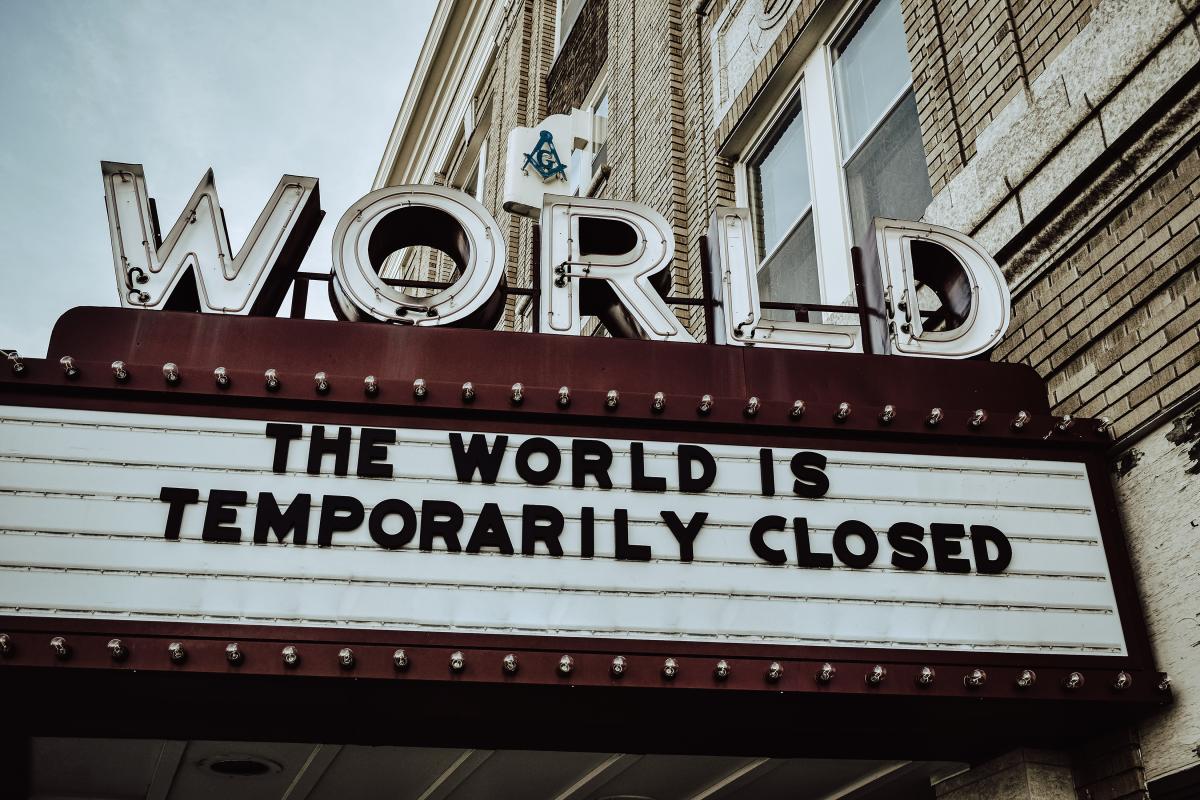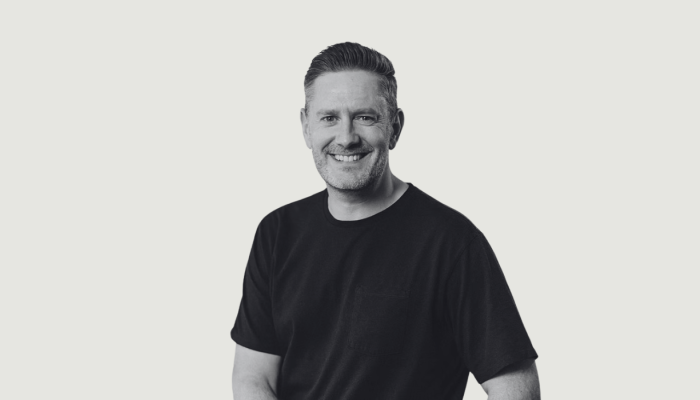This year our Brave Brand of the Year Award feels more fitting than ever as marketers have had to take courageous risks (both creative and commercial). They have had to do this at speed and in the face of uncertainty.
Getting to this shortlist was no mean feat. We were particularly interested to showcase the agility and pace at which brands reacted to the disruption as well as how they diversified to adapt to changing needs in order to not only serve but support their customers and wider community
With the help of a panel of brilliant marketing leaders we have identified the standout stories of true marketing excellence for this year so far. Last year’s worthy winner was Cancer Research UK. It’s down to you to vote for your brand of 2020.
The top five will go through to a live vote and the winner decided at our virtual Evening of Celebrations, Connections and Conversations 6-8pm on 25 November.
Head to our Brave Brand of the Year 2020 site to cast your vote. Voting closes midnight GMT on Sunday 15 November.
THE SHORTLIST
Aldi
Aldi became the first UK supermarket to use TV advertising to curb panic-buying, a campaign lauded by Kantar as the most effective of lockdown. The ad assured shoppers that Aldi was “trying our best” to supply “low priced, quality food” and to help key workers. Aldi’s compassionate (and business savvy) response, - including donating to Age UK, auctioning brand mascots to support NHS charities and launching fixed-price emergency packages for the vulnerable - has translated into income too, with sales up 10% on last year.
BrewDog
BrewDog is brave, often cheeky. But during COVID-19, its marketing has been exemplary. When shop shelves were being depleted of hand sanitiser, the brewer stepped into the fray, shifting its production lines to produce a “Punk Sanitiser”, which it gave away for free. Not content with fighting the spread of the virus itself, it sought to combat loneliness with the opening of virtual bars, fostering a sense of community via the likes of home-brewing masterclasses, pub quizzes and comedy.
Budweiser
Back in the halcyon days of the late 90s, Budweiser’s “Whassup?” ad became a sort of proto-meme, referenced in popular culture and winning awards. In April 2020, Budweiser resurrected and remixed the ad for a generation “in quarantine, having a Bud”. It was a move that didn’t jar - the original riffed on friendship, while the latest reinforced the importance of mates during trying times, with the endline: “Buds support buds. Check on yours.” This was reinforced with a June ad that showed a puppy reunited with its horse friends accompanied by possibly the most feel-good track of all time, Queen’s Don’t Stop Me Now.
Burger King
As a food brand, making your product look less than appetising is typically a no-go. But that’s just what Burger King did in its “Mouldy whopper” ad, in which its flagship burger literally decays, highlighting Burger King’s commitment to remove artificial preservatives by the end of 2020. Less divisively, this May saw Burger King create giant crowns that people could wear to help with social distancing and the next month it sent out hundreds of free Whoppers across the UK, encouraging people to share within their communities. On the other side of the pond, Burger King actively saluted frontline and “couch potatriots” with its very-much tongue in cheek-with-a-serious-point “Stay Home of the Whopper”.
Coca-Cola
In February, Coca-Cola announced it was suspending its marketing spend, and focusing instead on empathy. It was no mere lip service, with Coke donating $120m to organisations to help support COVID relief efforts, providing front-line workers with drinks and donating ad space, including at London’s Piccadilly Lights, to charity partners. But as lockdown restrictions were relaxed, Coke did not revert to type. On the contrary, its “Open like never before” ad fronted by George the Poet asked: “Who says we have to go back to normal?”, urging consumers to “keep social distance from bad energy”.
Deliveroo
The delivery sector was clearly an area of business that would benefit from lockdown. But that didn’t mean Deliveroo would rest on its laurels and reap the benefits. On the contrary, the brand went out of its way to support its consumers, its restaurant partners and the hospitality sector as a whole. This was demonstrated by its March pledge to give away 500,000 meals to NHS workers. It hit the target in June, before promising to give away another 100,000. It also partnered with Visa to offer financial packages to new partners, and advice on how restaurants could convert to delivery-only, as well as running February’s “Ride to find” campaign that played poignantly on the issue of missing kids and its partnership with charity Missing People.
Ikea
Ikea ads are both weird and cool. It’s an approach epitomised by the Swedish retailer’s summer 2020 “Conquer the great indoors” ad featuring a partially anamorphic lion ruling over the wilds of the household. That ad was followed up with an edgy and witty campaign promoting sleep as a source of energy, a TV ad that served as a prequel to Aesop’s famous story “the Tortoise and the Hare”, and accompanied to the tones of British rapper Roots Manuva. Stylish and standout.
ITV
Today’s ITV is a more progressive force than ever before. The channel continues to win plaudits for its socially-conscientious marketing. It has taken a brave stance on racism, emphatically supporting dance act Diversity after receiving complaints around their Black Lives Matter-themed performance on Britain’s Got Talent. It is also investing in media and entertainment businesses targeting 16-34-year-olds, joined up with BBC, Channel 4 and Channel 5 to promote TV’s ability to unite people and kicked off mental health week and in March, the emotive “Apart. But never alone” kicked off, with celebs and their family, including Gordon Ramsay and Davina McCall, checking up on their families while respecting lockdown regulations.
Just Eat
Sometimes it takes guts just to hold out. Which is what Just Eat did with its new campaign in which rapper Snoop Dogg creates a new version of the brand’s jingle. Rather than run it, Just Eat decided to wait until the UK’s social climate improved once lockdown rules were relaxed. In the meantime, the brand supported ITV’s “Britain get talking”, with customers thanking restaurant partners for delivering meals during lockdown, offering 25% off for NHS workers. Since then, Just Eat has been connecting with younger audiences through collaborations with TikTok influencers and the launch of Instagram stickers.
McDonald’s
After “Night workers” in March, an ad that depicted those awake when the world is sleeping (from nurses and firefighters, to McDonald’s staff), McDonald’s went uber-celebratory in the summer when it announced with great fanfare – and Mark Morrison’s 1996 hit Return of the Mack – that it was returning to business on Britain’s’ high-streets. It stood out from the more sober, virtuous messaging of yore. McDonald’s joyful ad depicted an excited public, anticipating and then relishing their favourite McDonald’s order, the Big Mac.
Nationwide
Nationwide exemplifies the notion of brand bravery. Whether that’s by confronting online hate or boycotting Facebook over the platform’s apparent refusal to condemn hate speech. Fronted by CMO and Marketing Society 2020 Bravest Marketing Leader of the Year, Sara Bennison, Nationwide donated media spend to Shelter and reunited with Channel 4 for an ad break highlighting the abuse faced by customer-facing staff. Defying tropes, April’s “Voices” work envisaged a progressive and enlightened future beyond coronavirus, at a time when most people’s vision was mired in a seemingly interminable present.
Nike
After decades of telling consumers to “Just do it”, Nike made the brave decision to mess with its brand heritage, inverting its own slogan in a bid to combat racism and support racial equality. “For once, don’t do it,” the sportswear label told consumers. Never one to cower from saying the right thing, however political, Nike’s tribute to late basketball player Kobe Bryant, saw Kendrick Lamar telling the world to “be better”.
Pret A Manger
Remaining agile during unprecedented times is clearly not going be easy, especially when you’re forced into axing around a third of your workforce. But Pret has maintained a nimble approach to business, adapting to challenging times, while also donating food and drink to the NHS and homeless. Its YourPret Barista subscription service is a case in point, charging consumers £20 a month for up to five drinks a day. The scheme has paid off, accruing 16,500 sign-ups by 3pm on the day of launch.
Tesco
Tesco’s newly-appointed chief executive Ken Murphy, said recently that store experience is far more valuable in shaping brand perceptions than advertising. His words are reflected in the supermarket’s approach during lockdown, when it more than doubled its delivery capacity to accommodate 1.5 million online orders every week, serving around 670,000 vulnerable customers. In July, research from the Internet Advertising Bureau UK and YouGov named it as the brand that made the most positive contribution during the pandemic. Meanwhile, Tesco dealt effectively with some controversy over featuring halal meat in its ‘Food Love Stories’ with the Advertising Standards Authority seeing no reason for investigation. Tesco also delved into mental heath, encouraging children to eat more veg and defeat the defeat demons.
TikTok
Both in the run-up to, and during the pandemic, TikTok has experienced massive growth in the UK, with reach among adults more than doubling, from 5.4 million in January to 12.9 million in April. It is also now courting brands more emphatically, launching its TikTok for Business platform, while it has recently called for a social media coalition to address the spread of harmful content and in October launched a campaign supporting Black History Month, celebrating cultural roots and black artists in a content and outdoor campaign.
Time Out
When the whole premise of your content hinges on literally going out on the town and a global pandemic strikes, you could be forgiven for giving up. Not Time Out though, which in response to lockdown in March, neatly side-stepped the issue by renaming itself “Time In” and continuing to attract advertisers. Its efforts to innovate, such as a tie-up with Instagram for a virtual festival supporting small businesses owned by BAME individuals, women and the LGBT+ community, speak emphatically of a brand that never shies away from existential challenges.
Top Cuvée
After north London restaurant Top Cuvée was forced to close its doors to business in March, after a moment’s deliberation its founders decided to “pivot”, reinventing the business as an online store. Using the restaurant as a base and Instagram Stories to spread the word, the business biked same-day deliveries of wines, cocktails, craft beers and shucked oysters to people at home or chilling in the park. Shop Cuvée proved such a success as a concept that the brand is opening a permanent physical site in addition to its now reopened restaurant.
University Arts London
University Arts London – Europe’s largest specialist art and design university, with more than 19,000 students – had its hand forced in February, when the looming prospect of lockdown meant it had to cancel its annual fashion show. Rather than leave it at that, the university created an online platform and hosted 50 virtual events in July. The UAL Graduate Showcase was created with IBM and hosted the final collections of graduating students from all its six colleges.
Virgin Media
With lockdown looming, Virgin Media realised the importance of its services and that its customers required a much-needed dose of certainty in uncertain times. Users were donated free minutes, increased data allowances, NHS and key workers were prioritised and extra channels to its TV offering, all at no extra charge. In March, the company launched a heartfelt campaign, “Stay home, stay safe, stay connected”. It featured video diary snippets made by people sharing their lockdown experiences, including footage of neighbours clapping for the NHS. It also hooked up with ITV to run an at-home version of its V Festival, with acts Olly Murs, Anne Marie and Dizzee Rascal headlining.
The Zoological Society of London
Approaching Sir David Attenborough to front a TV ad was a bold move but one that proved quite the coup for the Zoological Society of London, whose London and Whipsnade zoos had been forced to close due to lockdown. Using existing assets, ZSL brought the veteran natural historian onboard to front ”Don’t let ZSL go extinct”, outlining the organisation’s contributions to animal conservation during the past two centuries. It’s a great example of a campaign born of desperation but executed with anything but.



